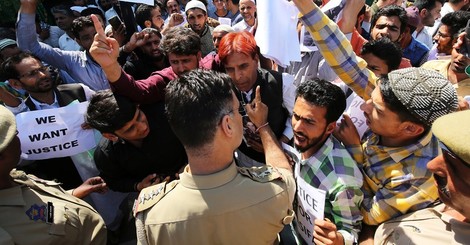Your podcast discovery platform
Curious minds select the most fascinating podcasts from around the world. Discover hand-piqd audio recommendations on your favorite topics.

piqer for: Global finds Health and Sanity Doing Good
Bangalore-based Rashmi Vasudeva's journalism has appeared in many Indian and international publications over the past decade. A features writer with over nine years of experience heading a health and fitness supplement in a mainstream Indian newspaper, her niche areas include health, wellness, fitness, food, nutrition and Indian classical Arts.
Her articles have appeared in various publications including Mint-Wall Street Journal, The Hindu, Deccan Herald (mainstream South Indian newspaper), Smart Life (Health magazine from the Malayala Manorama Group of publications), YourStory (India's media technology platform for entrepreneurs), Avantika (a noir arts and theatre magazine), ZDF (a German public broadcasting company) and others.
In 2006, she was awarded the British Print-Chevening scholarship to pursue a short-term course in new-age journalism at the University of Westminster, U.K. With a double Masters in Globalisation and Media Studies from Aarhus Universitet (Denmark), University of Amsterdam and Swansea University in Wales, U.K., she has also dabbled in academics, travel writing and socio-cultural studies. Mother to a frisky toddler, she hums 'wheels on the bus' while working and keeps a beady eye on the aforementioned toddler's antics.
A Child's Brutal Rape In India: Some Tough Questions For The World
Rape is everyday news in India. You read, you forget—rape fatigue, if you will. And yet, more than five years after the country erupted in protests over the rape of a young woman in a moving bus in the country’s capital, prompting a major change in laws related to sexual offences, Indians are again staring in the eye of a rape that is not only unimaginably pitiless but was also meticulously planned and executed for political reasons.
Here are the bare facts: Eight-year-old Asifa, a child belonging to a nomadic Muslim tribe in Kashmir was abducted, sedated and raped repeatedly inside the premises of a temple by a gang of men. She was then murdered by banging her head against a stone and her body was abandoned to rot.
This was allegedly committed by Hindu men to create fear in her tribal community and make them flee. And that was not all. Local policemen conspired with the suspects to destroy evidence and some of the town’s residents held marches – not to protest the rape but to prevent the arrest of the suspects! Among these protesters were lawyers and leaders of India’s ruling Bharatiya Janata Party (BJP).
It is not just the horror of the crime that has caused the incident to catch international attention – what is reverberating globally are the questions it raises about the impunity with which rape is used as a political weapon, the ‘vicious patriarchy’ that headlines this piece and the desperate lack of change in safety for women despite spurts of public fury.
This article looks at this local issue with a global eye and asks some questions of its own. Is there something irreducible about Indian misogyny? Does an atmosphere of macho nationalism perpetuate violence? Isn’t seeking punitive justice for women little more than melodrama?
As the author says, since men do terrible things to women all around the world, these are questions to which we need to seek answers always and not just when we avert our eyes from the bright purple dress on a tiny battered body.
Stay up to date – with a newsletter from your channel on Global finds.
